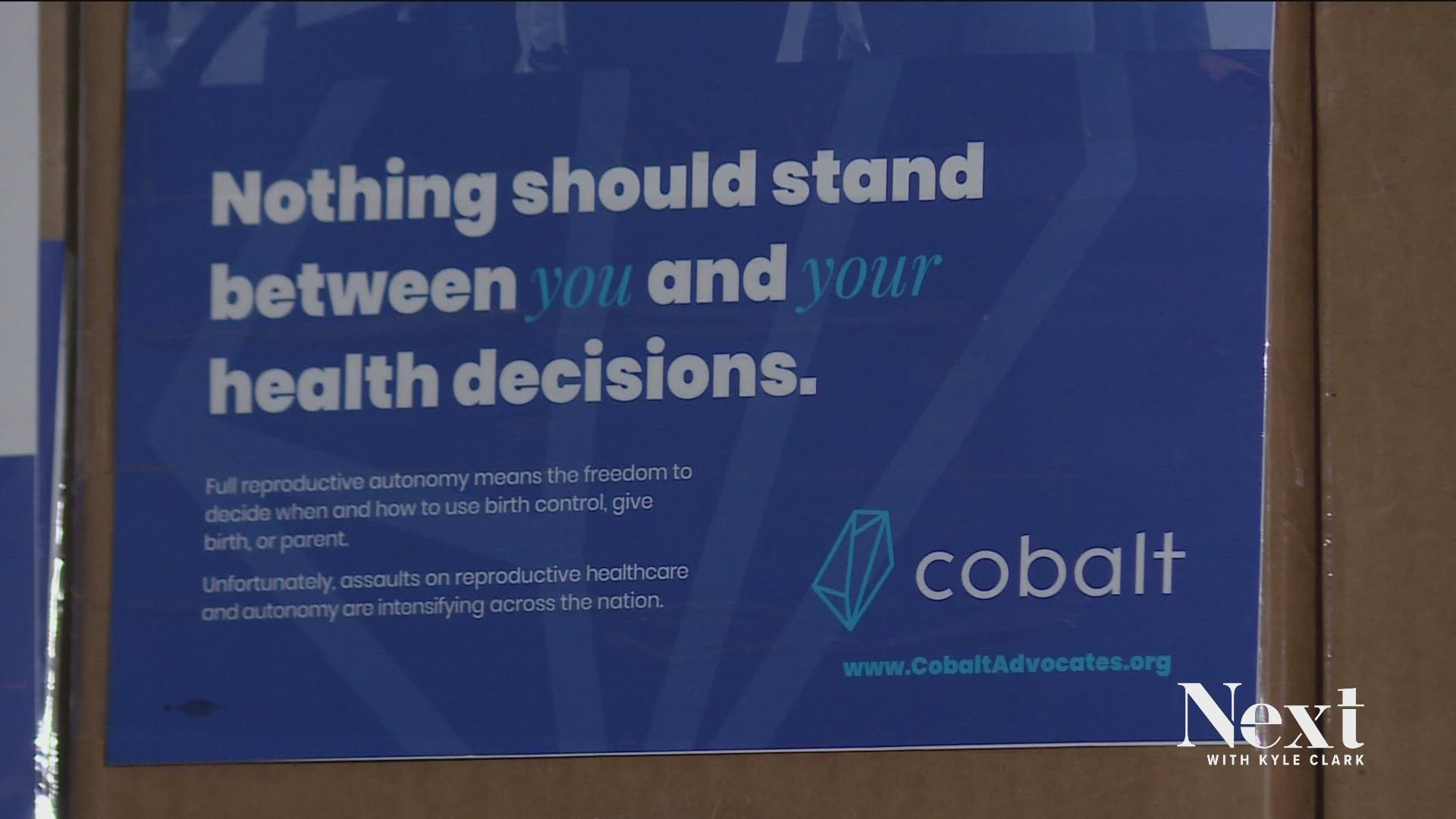DENVER — Colorado appears to be an island for abortion access, should the U.S. Supreme Court overturn Roe vs. Wade.
Colorado neighbors states that are expected to restrict abortion access, Nebraska and Kansas. And it's surrounded by states set to ban abortions: Texas, Wyoming, Oklahoma, Arizona, Utah, North Dakota and South Dakota.
New Mexico would simply not protect access to abortion, which leaves it vulnerable.
Colorado residents could be asked to vote on abortion rights again on a measure to restrict abortion access and another measure to make it difficult to restrict abortion access.
Cobalt, a group which defends a woman's right to choose, has been on defense against ballot issues seeking to restrict abortion access. Colorado voters have rejected those ballot issues, most recently with Proposition 115 in 2020, and previously in 2014, 2010, 2008, 2000 and 1998.
"In 2020, more people defeated that ballot measure, 'No on 115' and voted with us, than they voted for either Joe Biden or John Hickenlooper, so we outperform candidates by party," said Cobalt President Karen Middleton.
No on 115 received 59% of the vote, as voters rejected a ban on abortions after 22 weeks.
President Biden received 55% of the vote for president, and John Hickenlooper received 53.5% of the vote for Senate.
Middleton is now thinking offense by attempting a ballot measure for 2024.
"We've been defeating bad ballot measures almost every election cycle, and so the idea of taking the time to plan a proactive ballot measure didn't seem possible," said Middleton.
The expected ballot issue would ask voters to put abortion access rights into the state constitution. In April, Gov. Jared Polis (D) signed the bill passed by Democratic lawmakers to put a woman's right to choose into state statute.
State statutes can be changed by future legislatures and governors. They can also be changed with a ballot issue that receives majority support. Constitutional amendments are more difficult to change because they require voter approval. They are also harder to create since they require 55% to put into place or repeal.
The attempt by Cobalt will be in 2024 instead of 2022 because presidential elections generate more turnout.
"Trying to run a ballot measure in a midterm election year doesn't seem smart by anyone's estimation and we want the planning time," said Middleton.
Recent polling by Democratic polling firm Global Strategy Group, in conjunction with super liberal group ProgressNow Colorado, shows support for a constitutional amendment to protect a woman's right to choose.
That February poll showed 64% of voters supportive of a constitutional amendment "establishing a fundamental right of every woman to make and carry out decisions in all matters relating to her pregnancy, including decisions concerning abortion, birth control, prenatal care, and childbirth."
Of those polled, 31% said no.
"I don't think you should be surprised with this, but not because I'm a Democratic pollster, but because this is pretty consistent of what we've seen in Colorado for years," said Global Strategy Group Senior Vice President Andrew Baumann.
The question was also asked to poll respondents more simply.
"We often, always do a 'plain English' ask, where we ask it in plain English. In this case we said, 'Would you vote yes or no on a proposal that guarantees a woman's right to choose to get an abortion in Colorado.? In that case it was 66% to 31%, yes," said Baumann.
In that version of the question, the results were broken down by how those who answered identified politically.
Unaffiliated voters support guaranteeing a woman's right to choose in Colorado 68% to 29%. The spread was 56% to 42% for those who identify as "not very conservative Republicans."
"Very conservative Republicans" did not support that question 80% to 15%.
"Every office up and down the ballot from Governor to Senate to Congress, rushing to criticize the law that Democrats passed here to guarantee a woman's right to choose, they're really putting themselves out of touch, not only with unaffiliateds here, but with half of their own party," said Baumann.
It is possible for voters this November to see another abortion access restriction on the ballot.
A group is gathering signatures to qualify for the ballot an issue about "Unlawful Murder of a Child."
The abortion restriction ballot issue would define "murder of a child" as "intentionally causing the death of a living human being at any time prior to, during, or after birth while the child is under the age of 18 years by using or prescribing any instrument, medicine, drug, or any other substance, device, or means, and causing death."
The group has until the summer to collect and turn in enough valid signatures for the ballot issue to qualify.
SUGGESTED VIDEOS: Full Episodes of Next with Kyle Clark

